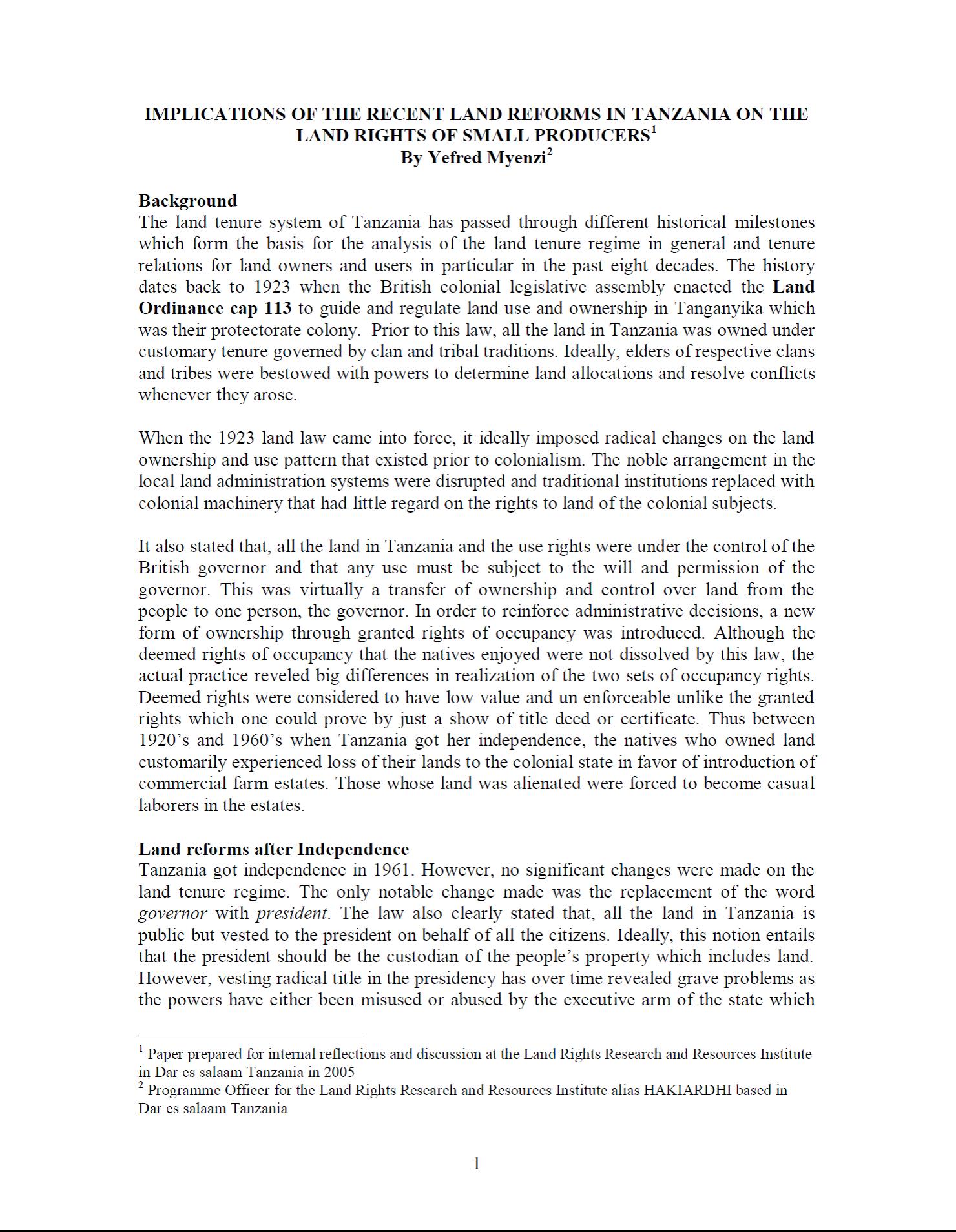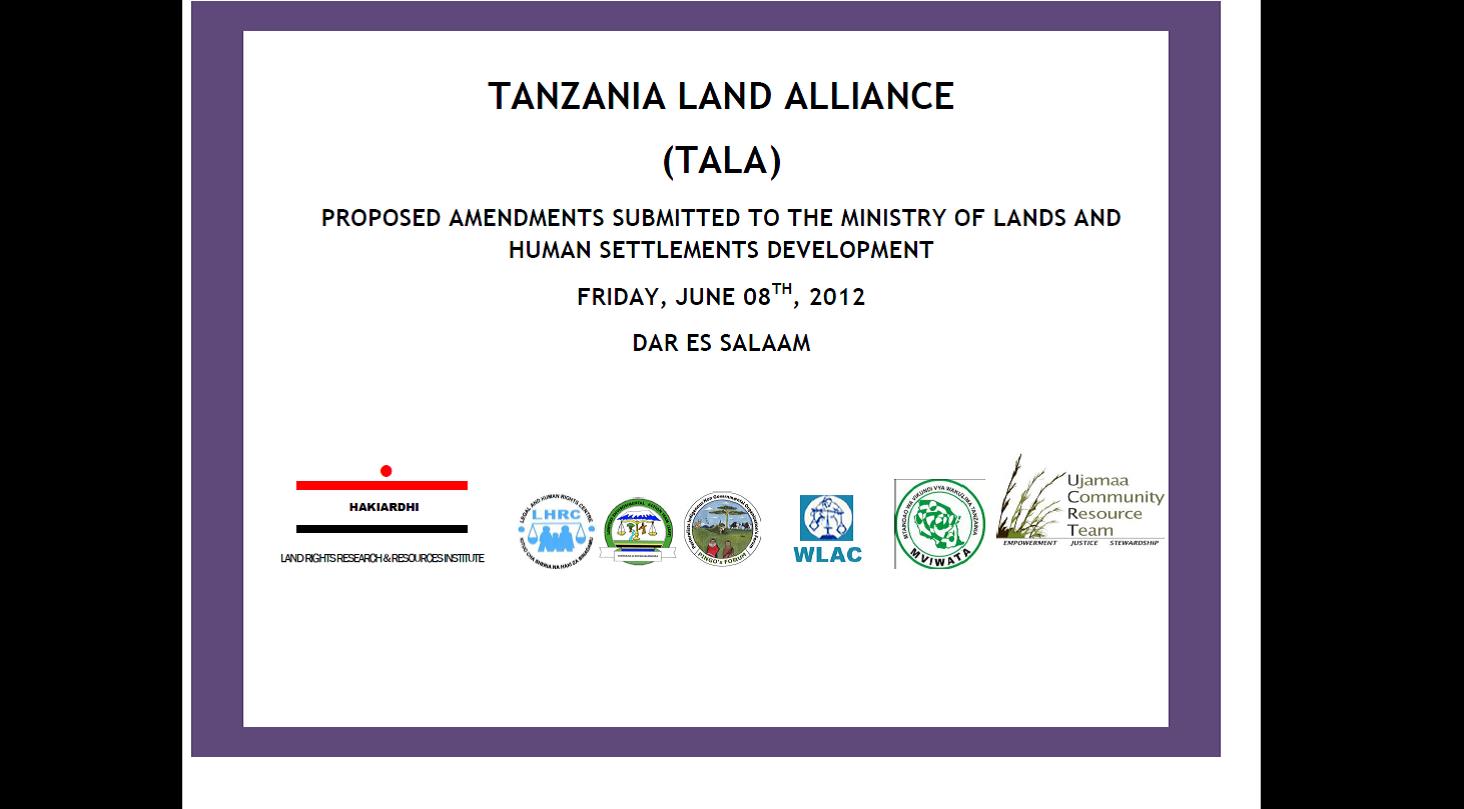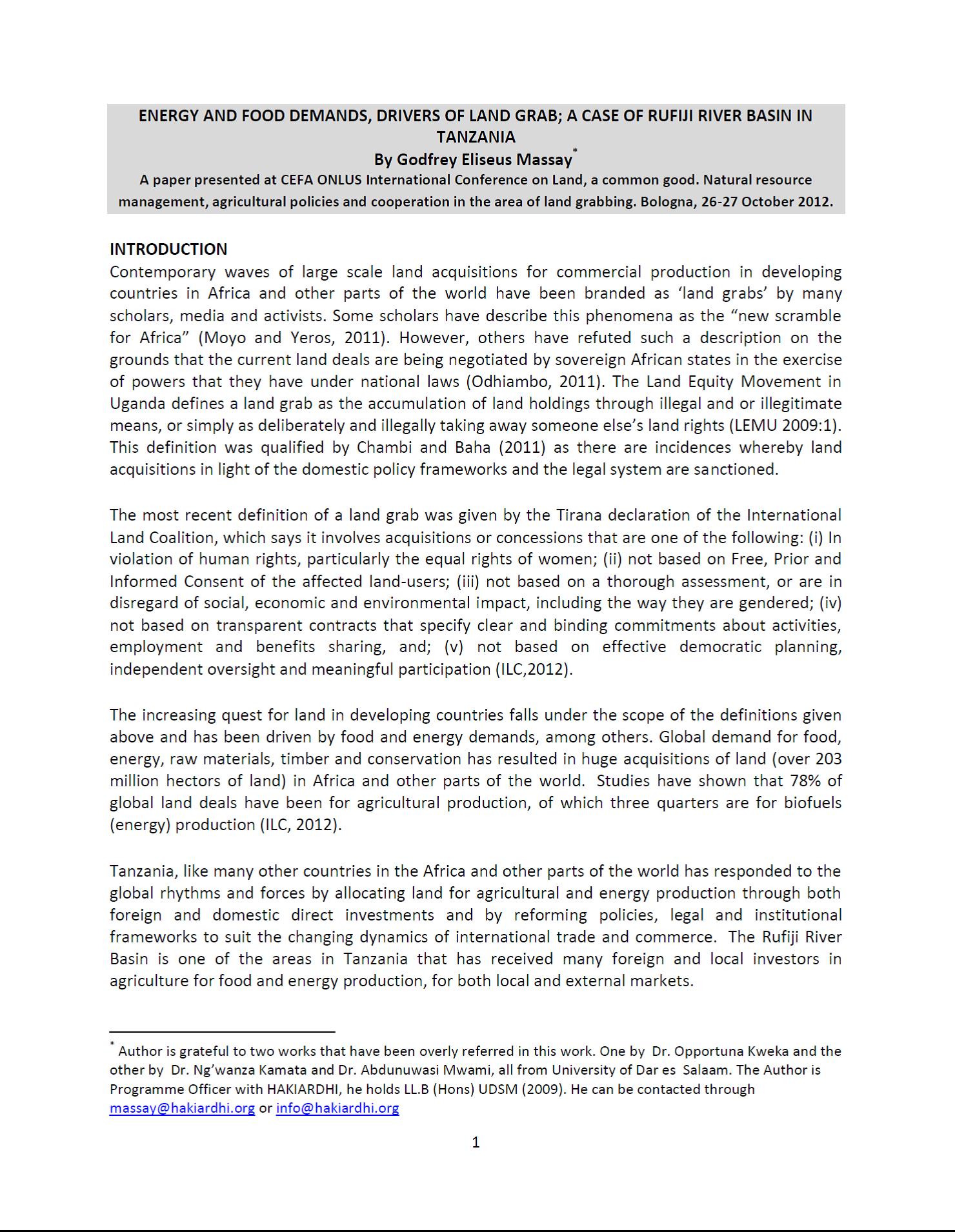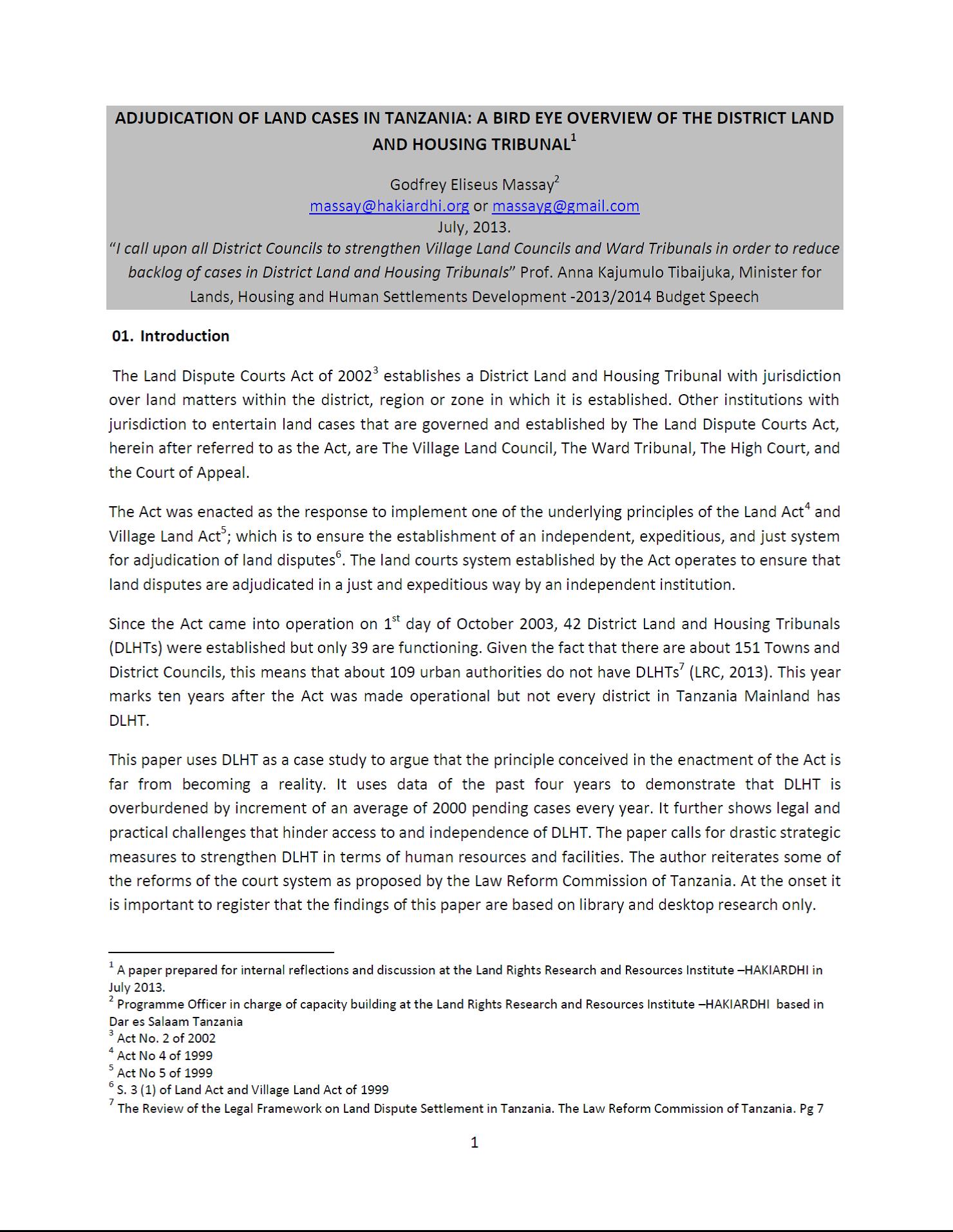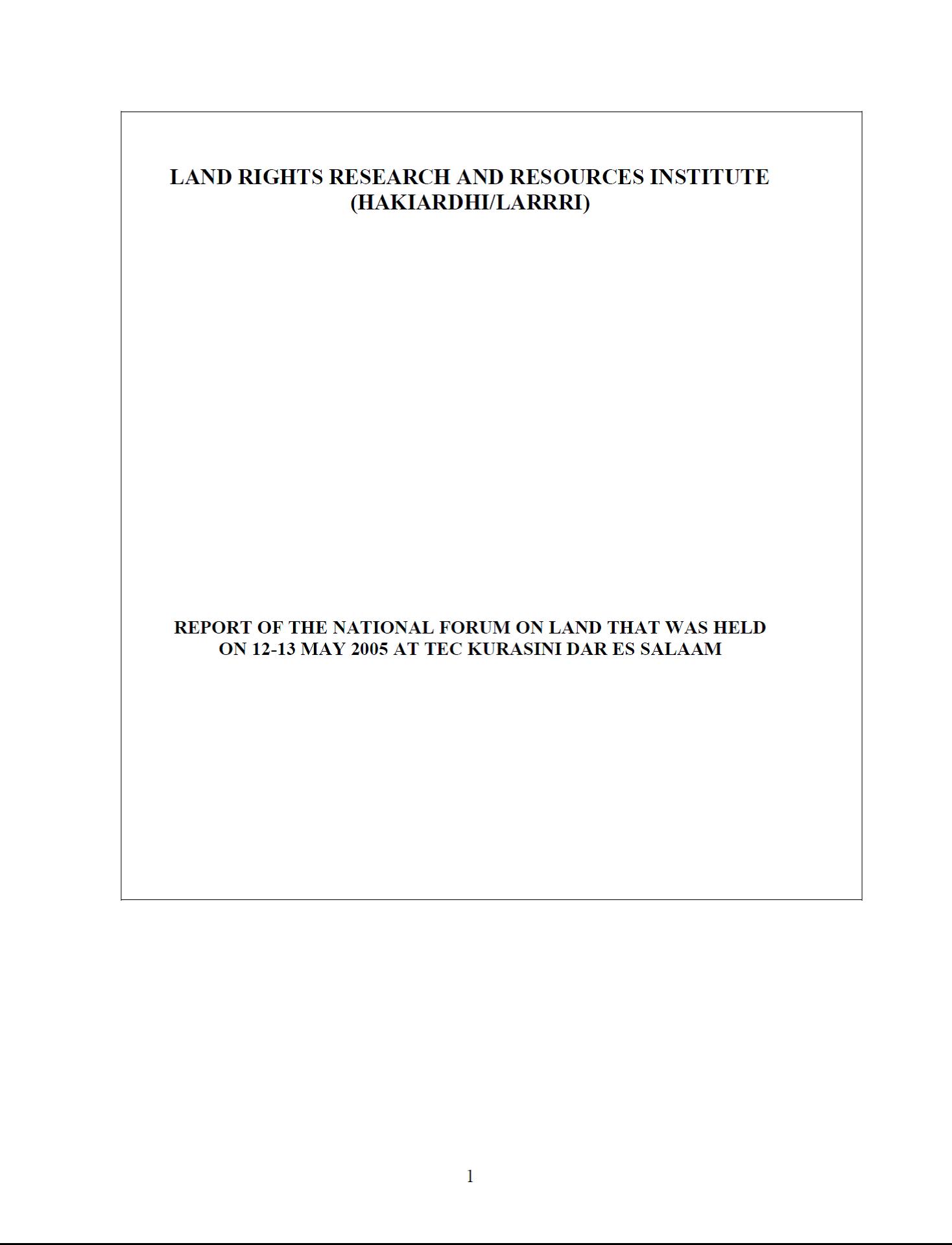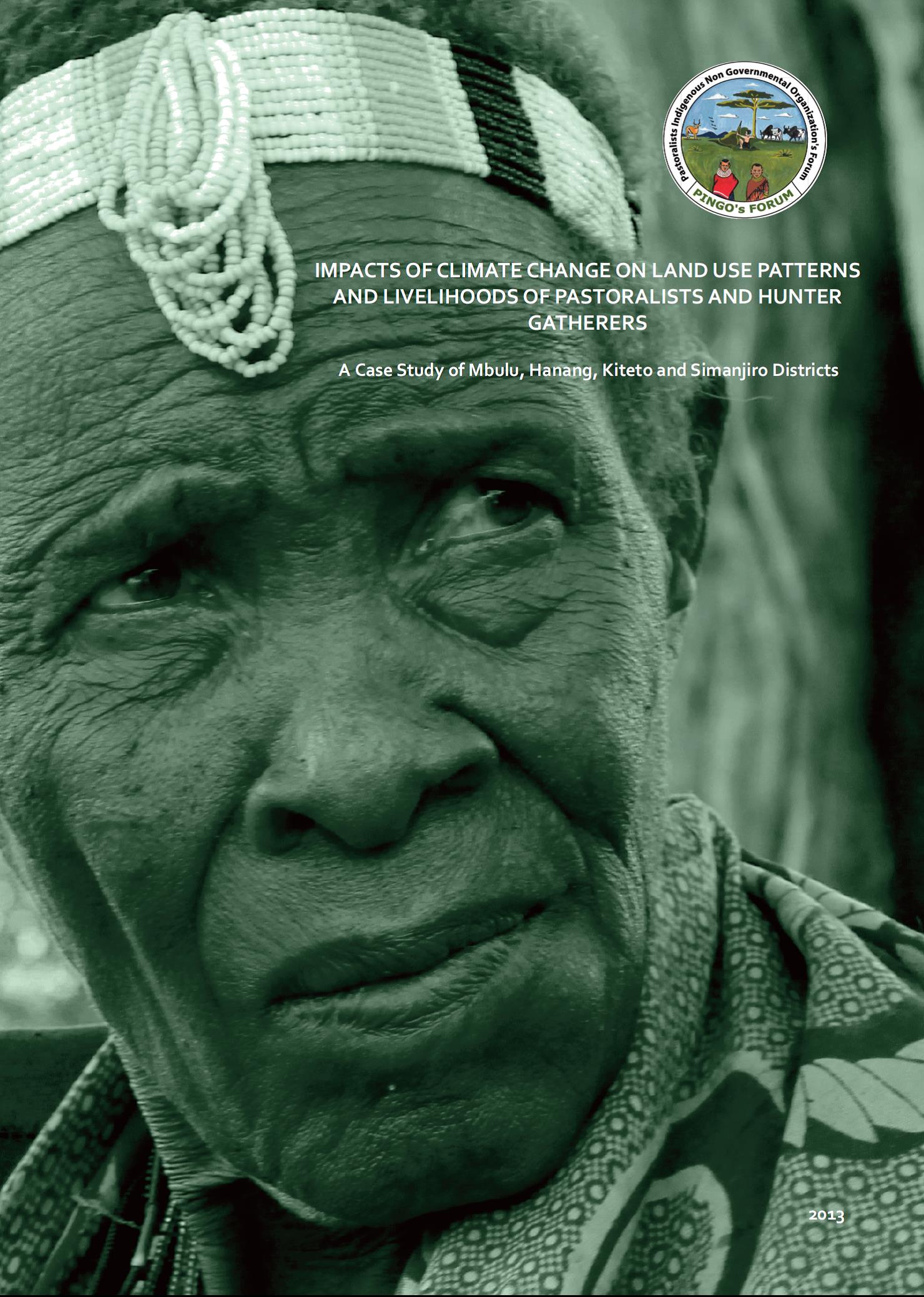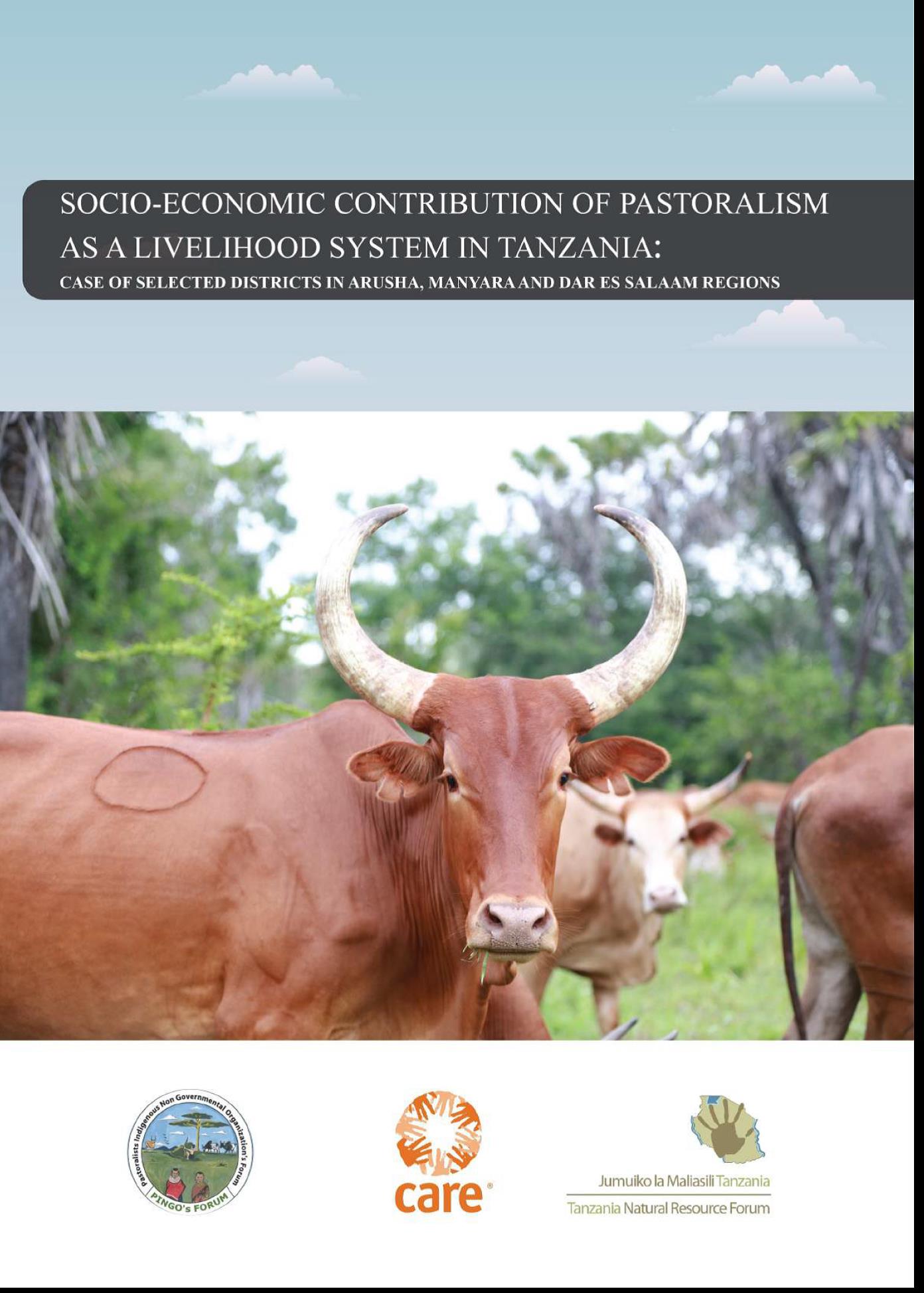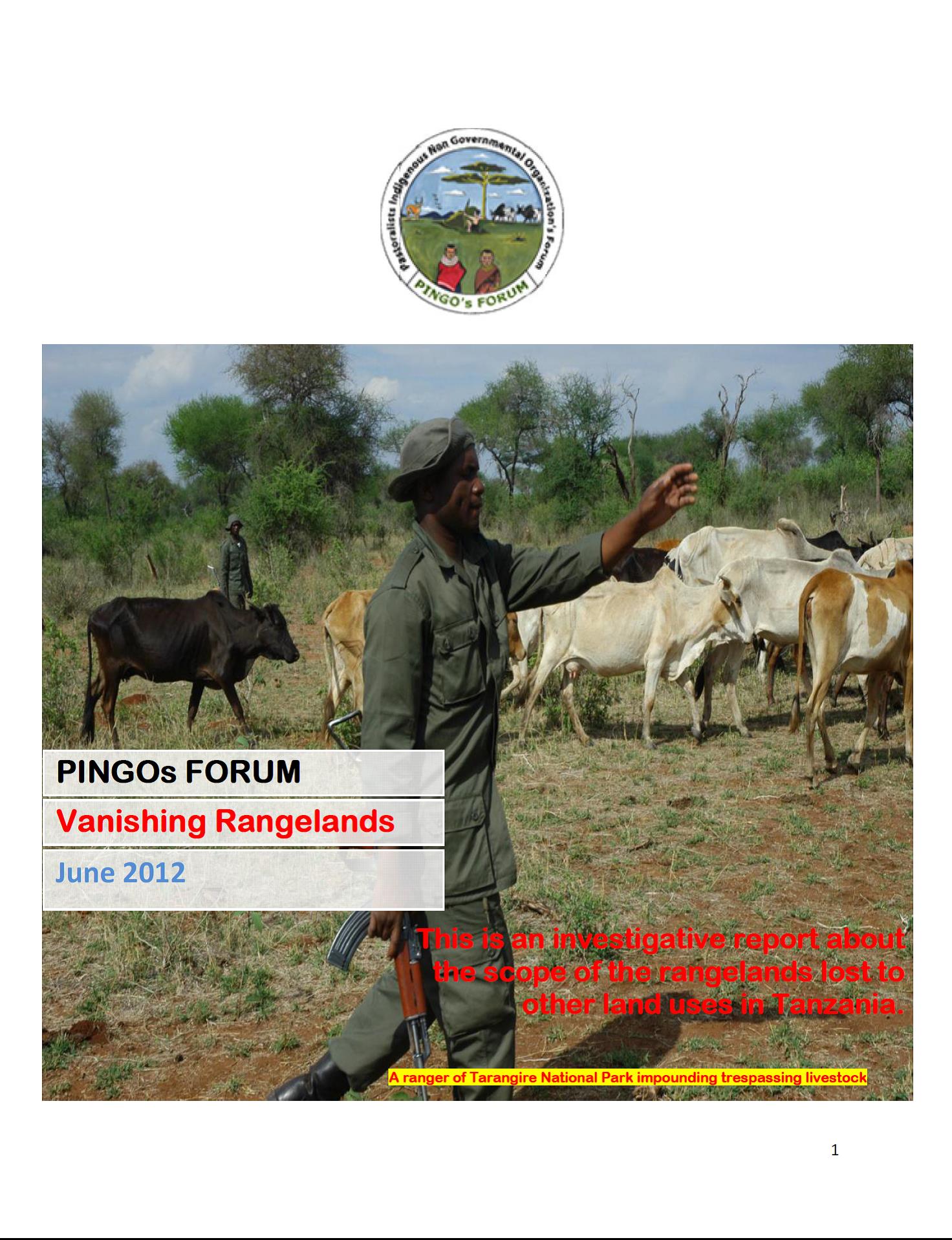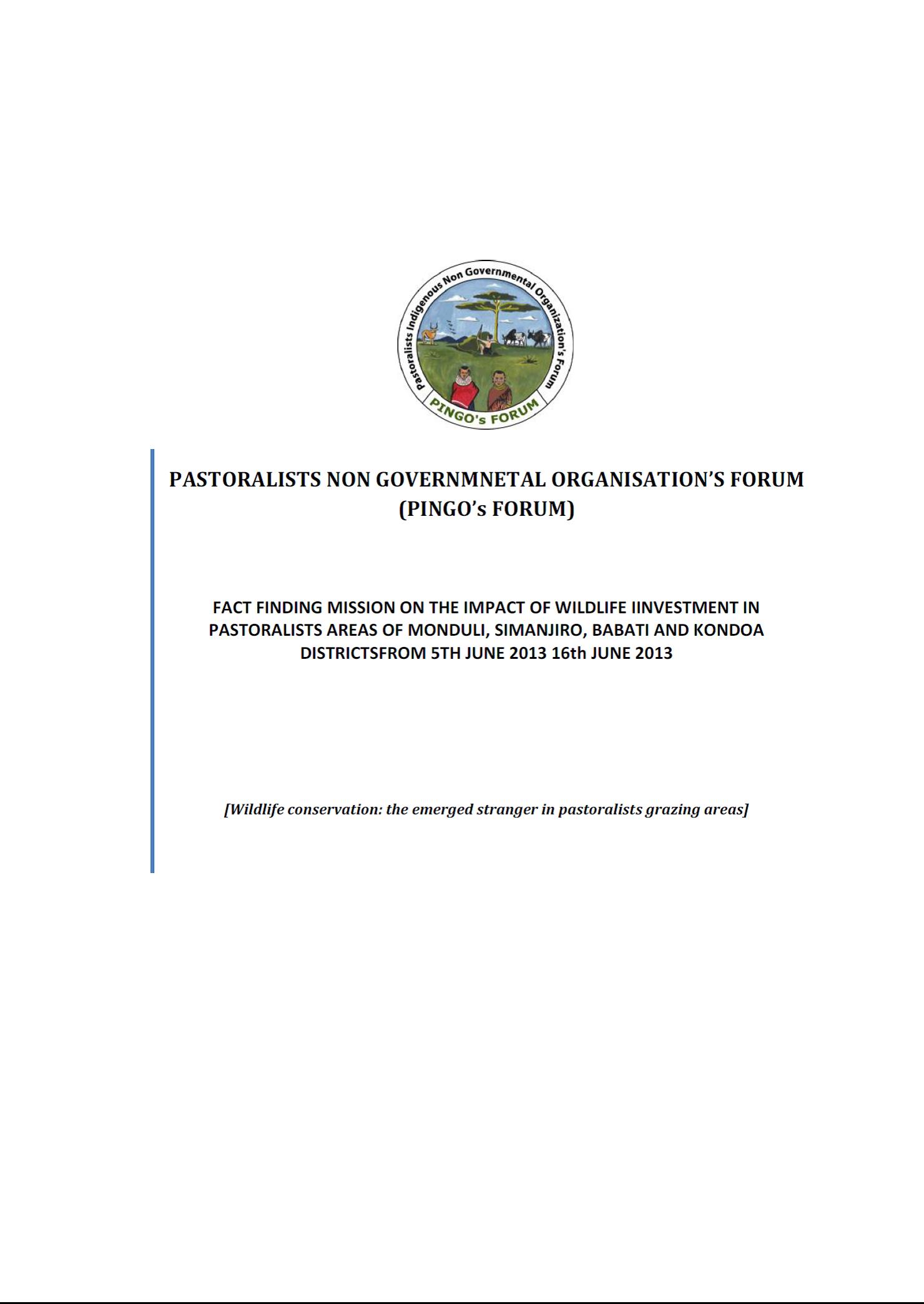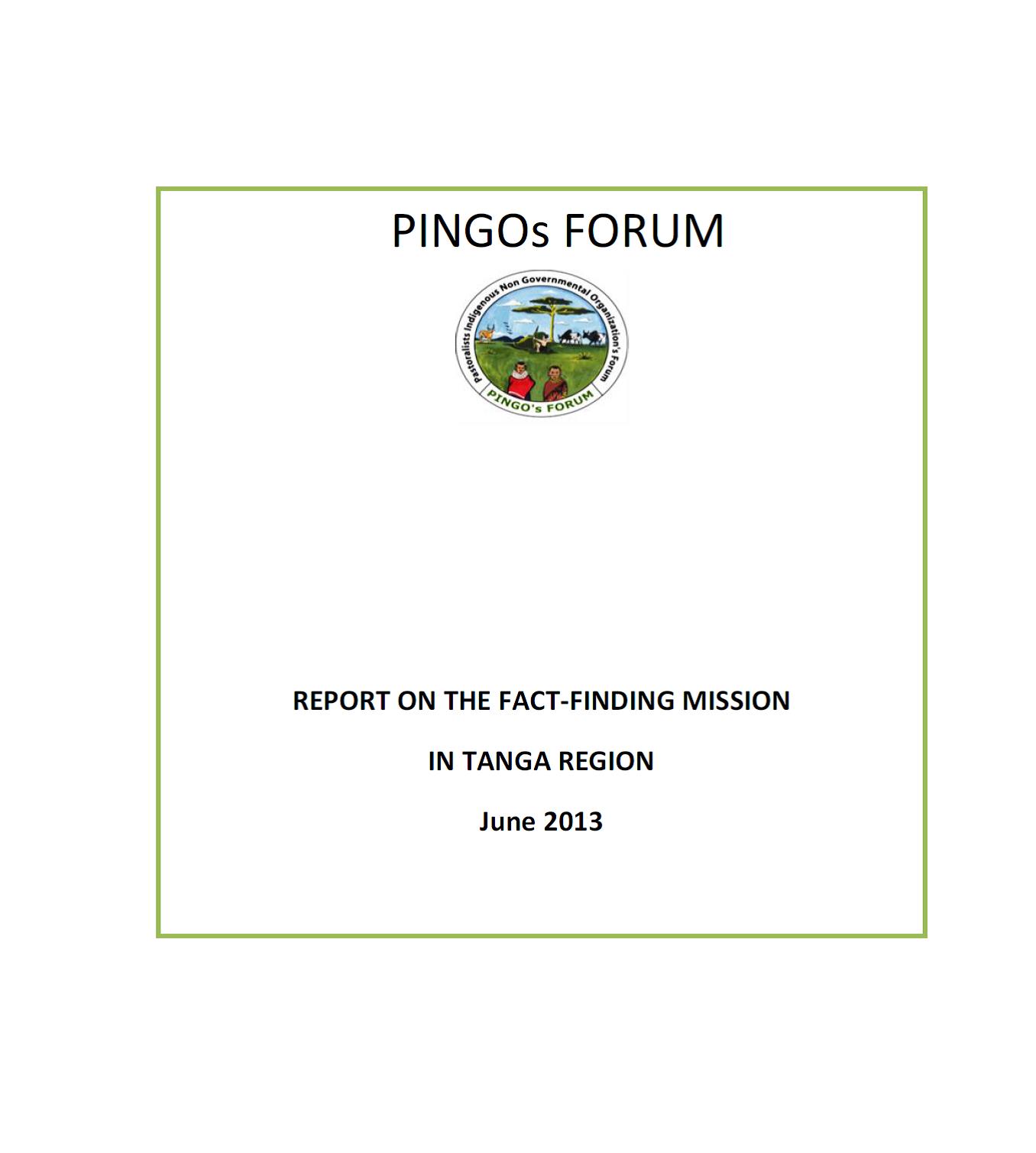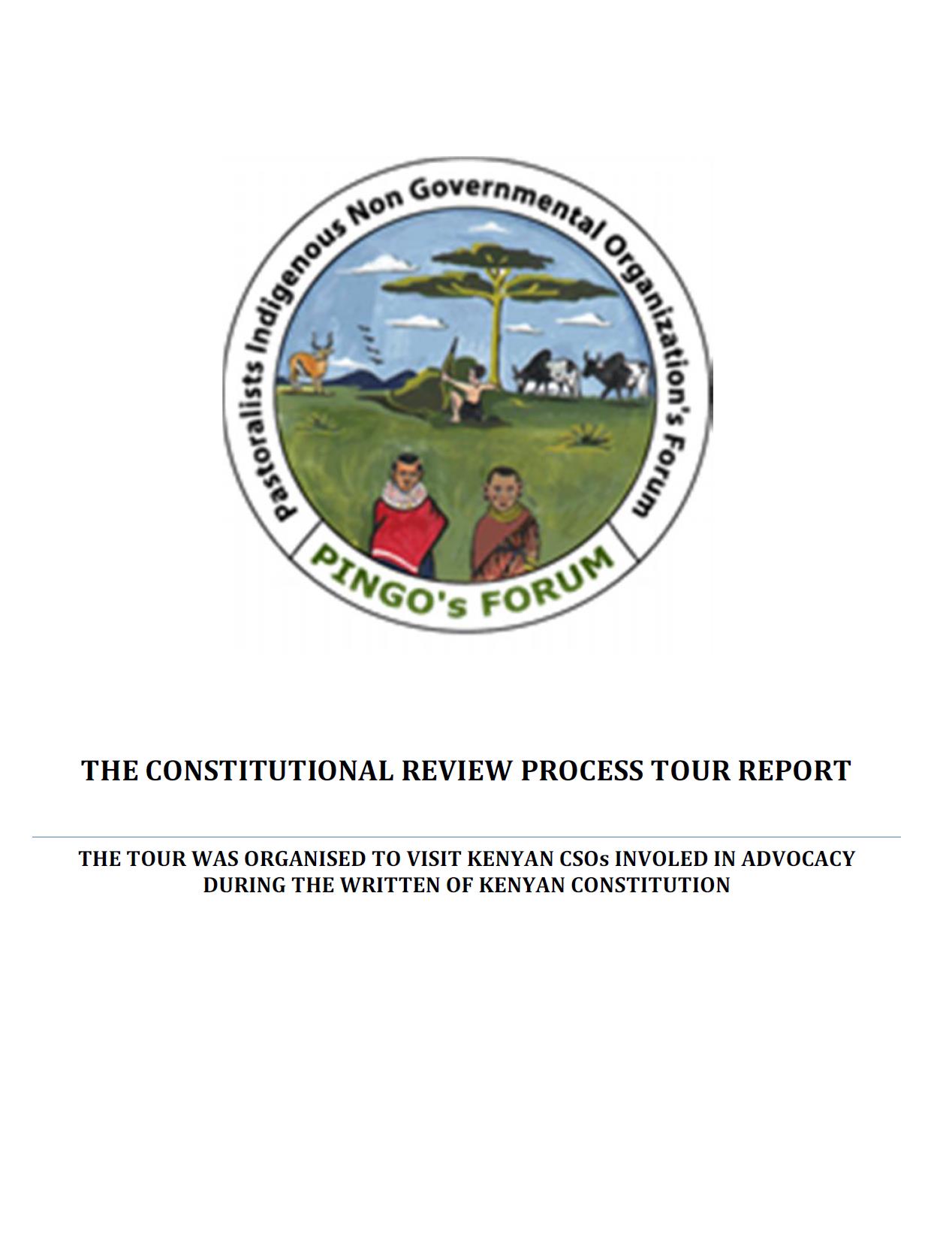Implications of the Recent Land Reforms in Tanzania on the Land Rights of Small Producers
The land tenure system of Tanzania has passed through different historical milestones which form the basis for the analysis of the land tenure regime in general and tenure relations for land owners and users in particular in the past eight decades. The history dates back to 1923 when the British colonial legislative assembly enacted the Land Ordinance cap 113 to guide and regulate land use and ownership in Tanganyika which was their protectorate colony. Prior to this law, all the land in Tanzania was owned under customary tenure governed by clan and tribal traditions.

